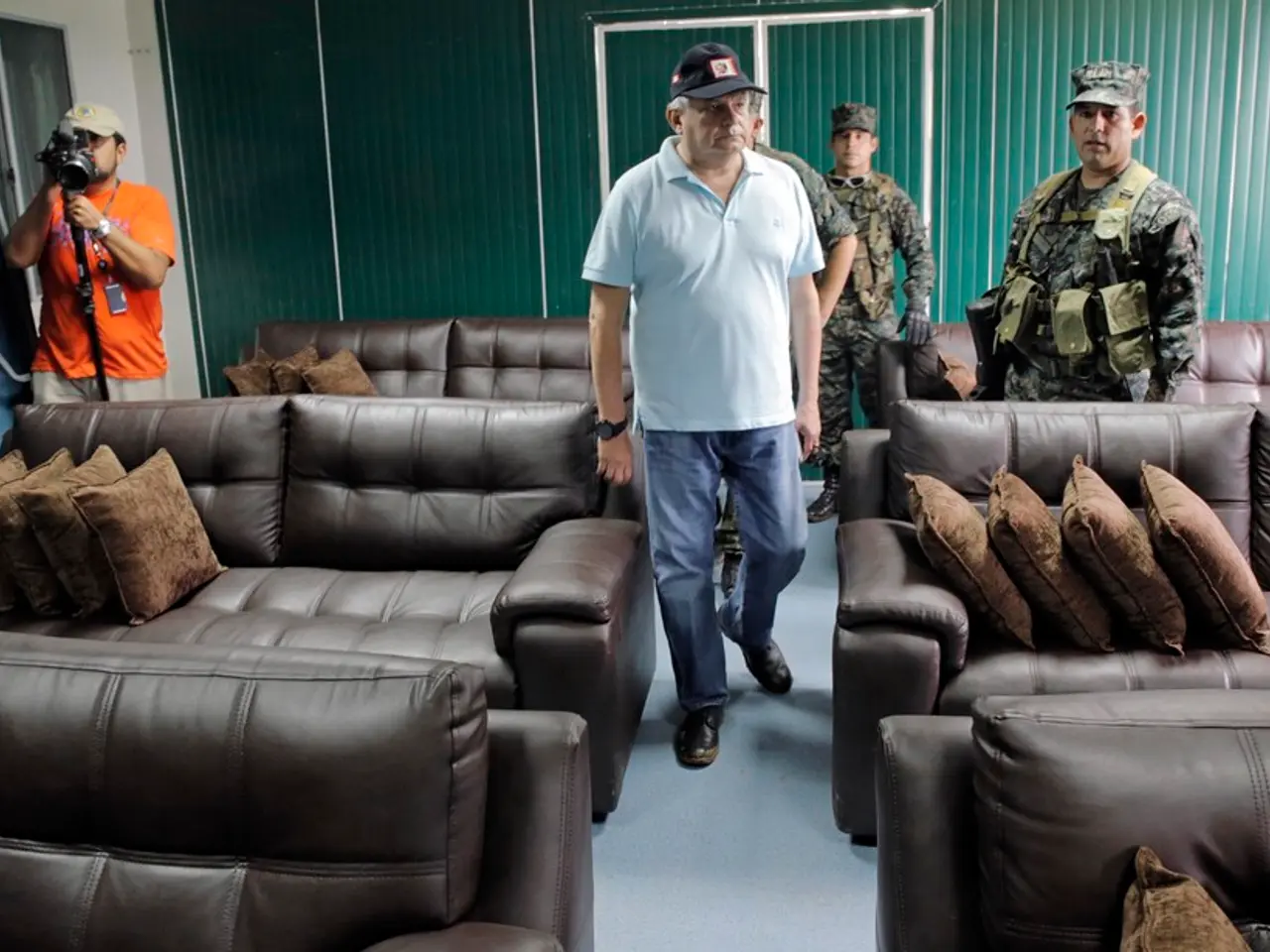Title: Ongoing Conflict in Ukraine: Diplomatic Efforts and Recent Developments
German Chancellor Merz joins Trump at Ukraine summit, appearing at 18:42
The war in Ukraine continues to rage on, with military operations ongoing on both sides. Ukrainian forces have been targeting Russian energy infrastructure, while Russian forces are engaged in offensive operations in northern Ukraine, particularly in the Sumy Oblast. The conflict has resulted in significant casualties, with estimates suggesting over 790,000 Russians killed or injured as of April 2025.
International efforts to facilitate a peaceful resolution are underway. The White House has been involved in discussions to arrange a meeting between Ukrainian President Volodymyr Zelensky and Russian President Vladimir Putin. However, Putin has reportedly been hesitant to meet due to personal animosity. Zelensky plans to discuss preparations for a possible meeting with Putin, along with potential security guarantees, with US Special Envoy Keith Kellogg.
Economic incentives have also been proposed as a means to encourage peace. US and Russian officials have been exploring energy deals, with discussions held during a recent summit and a visit by Trump's envoy to Moscow. The United States, along with other allies like the UK, continues to provide military support to Ukraine, with the UK extending its Operation Interflex, a training program for Ukrainian forces, until at least the end of 2026.
Despite ongoing peace talks, the conflict has seen periods of intensified violence. Russia has carried out significant attacks in recent weeks, resulting in civilian casualties. For instance, a Russian drone strike in Kharkiv left at least three people dead and 17 injured, including a one-and-a-half-year-old girl. Another major fire broke out at a fuel and energy infrastructure facility in the Odessa region following a Russian drone strike.
Ukrainian President Volodymyr Zelensky views a meeting with Putin as crucial for ending the war and has expressed hope for international contributions, including from India, to support this effort. However, the US President's stance on the conflict remains unclear, as he has rejected advice on how to proceed.
In the midst of these developments, there are concerns about the shift in international alliances. CDU foreign policy expert Roderich Kiesewetter believes that European unity is more important now that the US has "switched sides to Xi and Putin." This sentiment is echoed by former US Vice President Mike Pence, who is calling on President Donald Trump to impose new secondary sanctions against Russian President Vladimir Putin.
The situation remains fluid, with new developments and concerns arising regularly. For example, the Ukraine military claims to have attacked an oil pump station in the Russian region of Tambov using drones, leading to a disruption in the Druzhba pipeline. Moscow has linked its approval of security guarantees for Ukraine to credible assurances for its own security.
As diplomatic efforts continue, the international community must remain vigilant and supportive in the pursuit of a peaceful resolution to the conflict in Ukraine.
- The ongoing conflict in Ukraine is not only a matter of war-and-conflicts but also a concern that intersects with the politics of the region, as evidenced by the diplomatic efforts, economic incentives, and international alliances being discussed.
- The recent intensification of violence in Ukraine, such as drone strikes causing civilian casualties and the disruption of energy infrastructure, highlights the serious general-news implications and crime-and-justice aspects associated with this on-going conflict.







